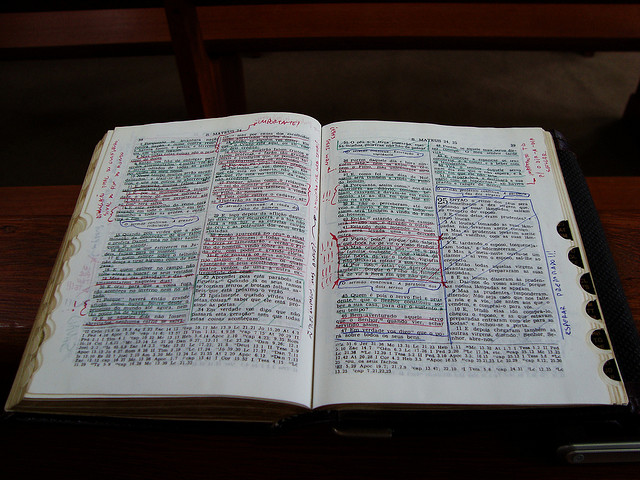
The Case for “Mirth”
Psalm 100 is a mountaintop experience in reading through the Bible. Not only is it near the exact center of Holy Writ, its message is one of gratitude, praise, and joy. Here is the entire text of this well known passage:
Make a joyful noise to the Lord, all the earth!
Serve the Lord with gladness!
Come into His presence with singing!
Know that the Lord, He is God!
It is He who made us, and we are His;
we are His people, and the sheep of His pasture.
Enter His gates with thanksgiving, and His courts with praise!
Give thanks to Him; bless His name!
For the Lord is good;
His steadfast love endures forever,
and His faithfulness to all generations.
You may not be able to quote those five verses, and they may even be a bit unfamiliar to you, but you probably sing them often. Or, at least, you sing something adapted from them.
A song that is in every hymnal I know is usually called by its first line, but it was originally called “Old Hundredth.” It is simply an Anglicized version of the 100th Psalm set to a simple tune. Personally, it is one of my favorite hymns.
However, there is one word that has been changed over the years that I wish we would change back! Here is the first verse of that song, as it appears in hymnals today:
All people that on earth do dwell,
Sing to the Lord with cheerful voice;
Him serve with fear, His praise forth tell;
Come ye before Him and rejoice.
Obviously, that is a very powerful stanza, and there is nothing wrong with it. However, there is one word that takes away from the whole intent of Psalm 100. Did you see the word? “Him serve with…fear!”
Is having “fear” (respect, awe) for God a Biblical concept? Of course it is. I regularly teach and preach that we need a deeper respect for our Father. In reality, every other facet of our beliefs starts with a real awe for Him.
However, there is nothing wrong with singing what the song originally said: “Him serve with mirth!“
Admittedly, “mirth” is an antiquated term, but we get the point when we read Psalm 100, do we not? This is a psalm of unfettered praise and joy. Oh that we had that in our lives more often!
When is the last time you truly felt unadulterated joy when you considered God and His attributes? How long has it been since you said a prayer containing nothing but joyful praise to Him (no requests, no anguish…just praise). Can you recall the last time you privately sang a song of praise to God in joy for His glorious nature?
Somewhere along the line, someone decided to change “mirth” to “fear.” Both are Biblical concepts, and we must have them. Sometimes, though, we need to just think of God and have mirth.
“Him serve with mirth, His praise forth tell!”
QUESTION: Why are we so often afraid to speak of unfettered joy when we think of God?
————————–
Photo credit: @jbtaylor on Creative Commons
To receive our blog posts via rss, click here. To subscribe via email, click here.






One Comment
edwtwin2
I think we are afraid to speak of our joy because we are afraid people will think of us as a kook. I think we can show it within our countenance and our reactions to life’s situations easier than we can speak of it.
I do, however, wish we could speak more freely about it within our own church families. I think sometimes we are even afraid to do that!